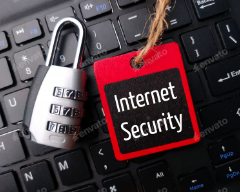Browsing the internet safely is essential to protect your personal information and maintain your privacy. Here are some effective strategies to help you stay safe online:
1. Use Strong Passwords
- Create Complex Passwords: Use a combination of uppercase and lowercase letters, numbers, and symbols. Avoid easily guessed passwords.
- Use a Password Manager: Consider using a password manager to securely store and manage passwords.
2. Keep Software Updated
- Regularly Update Your Browser: Ensure your web browser is up to date to benefit from the latest security features and patches.
- Update Operating System: Keep your operating system and any installed software up to date to reduce vulnerabilities.
3. Enable Two-Factor Authentication (2FA)
- Add an Extra Layer of Security: Use 2FA on accounts that offer it, which requires not only a password but also a second form of verification.
4. Be Cautious with Links and Attachments
- Avoid Clicking Suspicious Links: Be wary of clicking on links in emails or messages from unknown sources, as they may lead to phishing sites or malware.
- Scan Attachments: Use antivirus software to scan any email attachments before opening them.
5. Use Secure Websites
- Look for HTTPS: Ensure the URL starts with “https://” which indicates a secure connection. This helps protect your data during transmission.
- Avoid Public Wi-Fi for Sensitive Transactions: If you must use public Wi-Fi, avoid accessing sensitive accounts (e.g., banking) without a VPN.
6. Use a Virtual Private Network (VPN)
- Consider a VPN: A VPN encrypts your internet connection, providing an extra layer of security, especially on public networks.
7. Be Mindful of Privacy Settings
- Adjust Social Media Privacy: Review and adjust privacy settings on social media to control who can see your information and posts.
- Limit Data Sharing: Be cautious about what information you share online, even on trusted sites.
8. Educate Yourself About Phishing
- Recognize Phishing Attempts: Learn to identify signs of phishing emails, such as poor grammar or urgency. Always verify the sender’s email address.
9. Use Antivirus and Anti-Malware Software
- Install Reliable Security Software: Use antivirus and anti-malware programs to protect against threats and scan for malware regularly.
10. Regularly Backup Data
- Create Backups: Regularly back up your data to protect it from loss due to malware attacks or ransomware.
11. Log Out After Use
- Sign Out of Accounts: After accessing sensitive accounts, sign out, especially on shared devices, to prevent unauthorized access.
Implementing these practices can greatly enhance your online safety and protect your personal information while browsing the internet.
